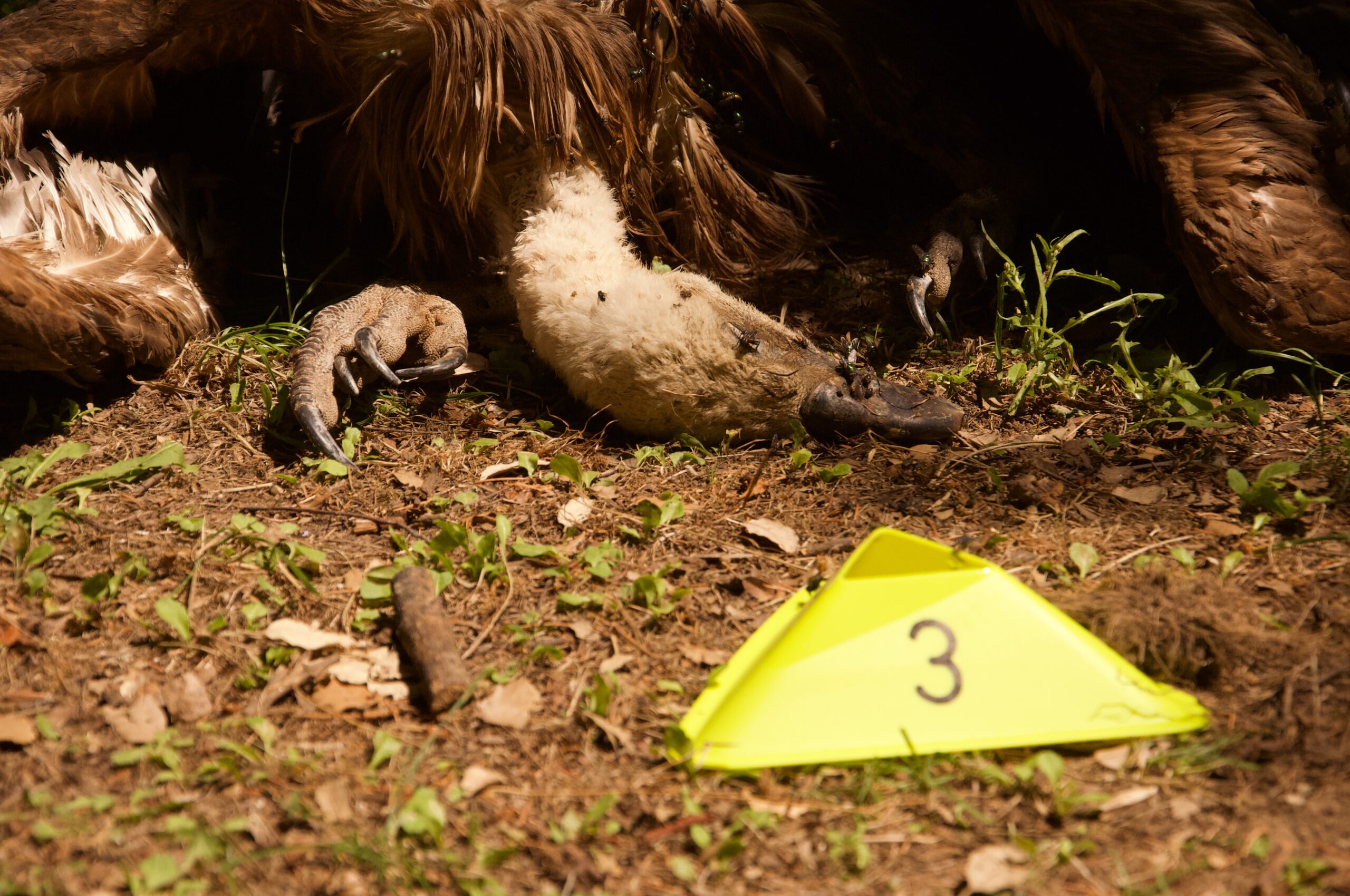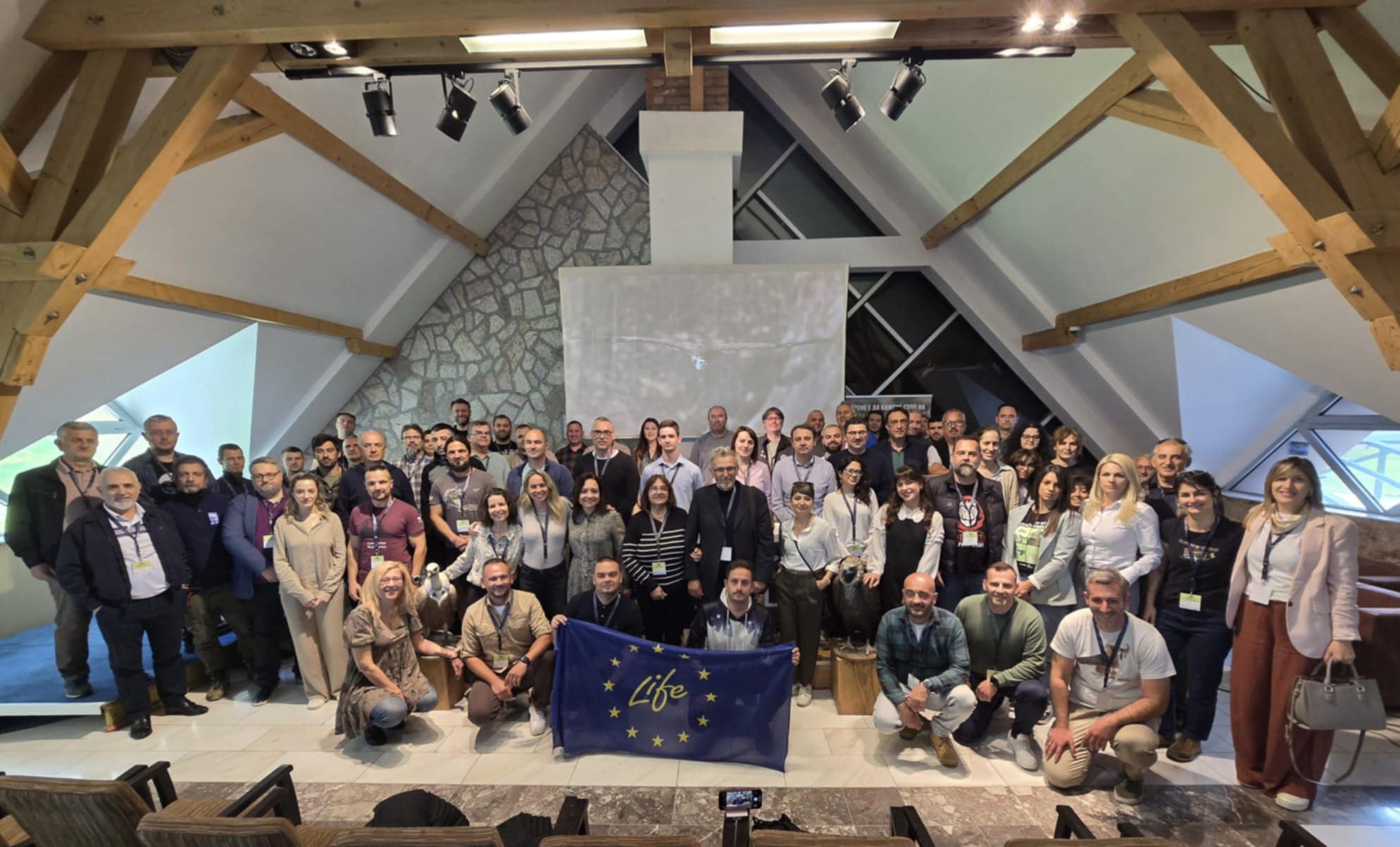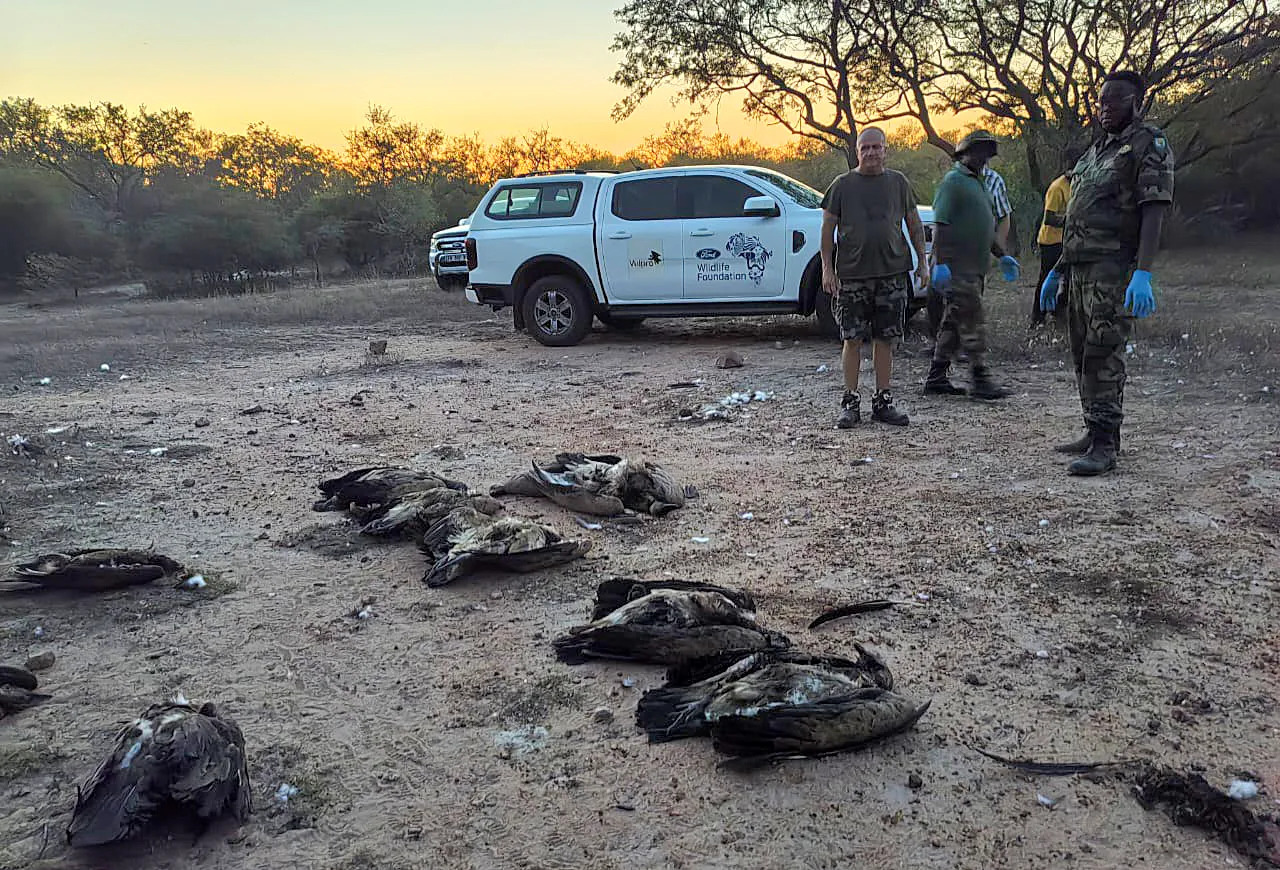
On 16 September, the Vultures Back to LIFE team detected a mass poisoning incident in Northwest Bulgaria. The team detected the case very early, thanks to the GPS transmitters on Griffon Vultures, and reacted duly. They have found and retrieved the poisoned bait, which was an entire carcass of a calf.
So far, they discovered the dead bodies of five Griffon Vultures and a Golden eagle. This time, it was near Vrachanski Balkan Nature Park, 20 km out of the Park at the traditional roosting and breeding sites of the Griffon Vultures.
Investigating the incident
The protocol for establishing the case and the perpetrator is tightly followed, with the police, the Regional Environmental Inspectorate and veterinarians engaged. The anti-poisoning experts from the Bulgarian Society for the Protection of Birds (BSPB) swiftly responded to the scene to restore the colony in the area by removing the poison baits and avoid similar incidents in the future.
The Golden eagle corpse was found and pictured next to the bait by Hristo Peshev from the Fund for Wild Flora and Fauna (FWFF) in the evening of the same day (16.09.2019). The poisoning incident was detected by the two transmitters of Griffon Vultures that fell 3 and 6 km from the consumed bait.

In the next morning, when the police arrived, the body of the eagle was missing, possibly showing that someone is trying to hide the clues of the crime. Even the anti-poison dog unit from BSPB did not succeed to detect the carcass of the eagle.
However, the two Griffon Vultures with the transmitters were found by the ground team together with the police. Thanks to locals, more Griffon Vultures were found and collected. The corpses of the vultures were sent to an official laboratory in Sofia to be examined. Toxicological analyses will be made in Sofia, but samples will be also sent to Spain.
The remaining Griffon Vulture population in Vrachanski
The bulk of the colonies in the Vrachanski Balkan Nature Park are well and alive. There are around 70-80 birds, and no more then 20 were affected by this incident. It seems that this case impacted the local community, as they have reacted strongly against this case.
Tackling illegal wildlife poisoning
Illegal wildlife poisoning is vultures’ biggest threat globally. This is in fact the conclusion of the Vulture Multi-species Action Plan (Vulture MsAP), co-developed by us here at the Vulture Conservation Foundation, and endorsed by the Convention for Migratory Species (CMS),with a significant part of this global action plan for vultures focusing on the actions needed to fight this threat.
The VCF is particularly active in fighting this threat and is implementing many projects across Europe and many actions against poisoning. In Europe we are actively pursuing different lines of work to fight this threat, among which is the Balkan Anti-Poisoning Project, funded by the MAVA Foundation. The project is working and funding local partners in five counties (Croatia, Albania, Bosnia-Herzegovina, North Macedonia and Greece) to try to eradicate this illegal and highly damaging practice.
During the European Vulture Conference 2019, this October in the Algarve, we will bring together vulture conservationists across Europe to share their research and expertise. Illegal wildlife poisoning is one of the issues that will receive a lot of attention.
Vultures Back to LIFE

Led by the wildlife conservation charity Green Balkans, with activities also implemented by the Fund for Wild Flora and Fauna, and bringing together partners from Bulgaria, Spain and Germany, Vultures Back to LIFE aims to reintroduce the cinereous or Eurasian black vulture to Bulgaria. The team will transfer and release around 60 birds, some from captive-breeding, but mostly coming from wildlife rehabilitation centers in Extremadura (Spain) into the wild in Bulgaria as well as creating supplementary feeding stations and improving populations of wild herbivores, improving the nesting conditions and creating artificial nest sites and tackling some of the major threats to vultures in the country such as insulating electricity pylons and illegal use of poison in the nature.








